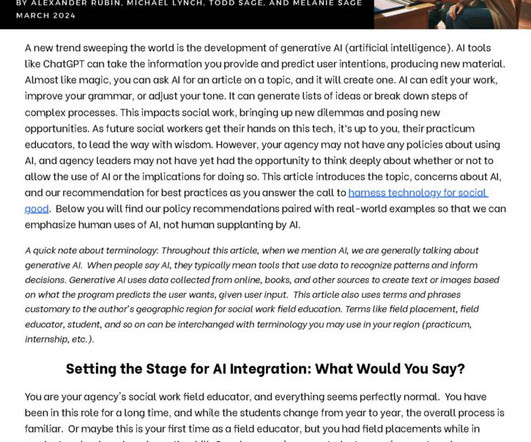Navigating AI in Social Work Education
Teaching & Learning in Social Work
MARCH 29, 2024
Alexander Rubin , LCSW, is a clinical assistant professor based in field education at the University at Buffalo School of School of Social Work. Michael Lynch , LMSW, is a clinical associate professor at the University at Buffalo School of Social Work. She also works with agencies to train staff in Motivational Interviewing.












Let's personalize your content